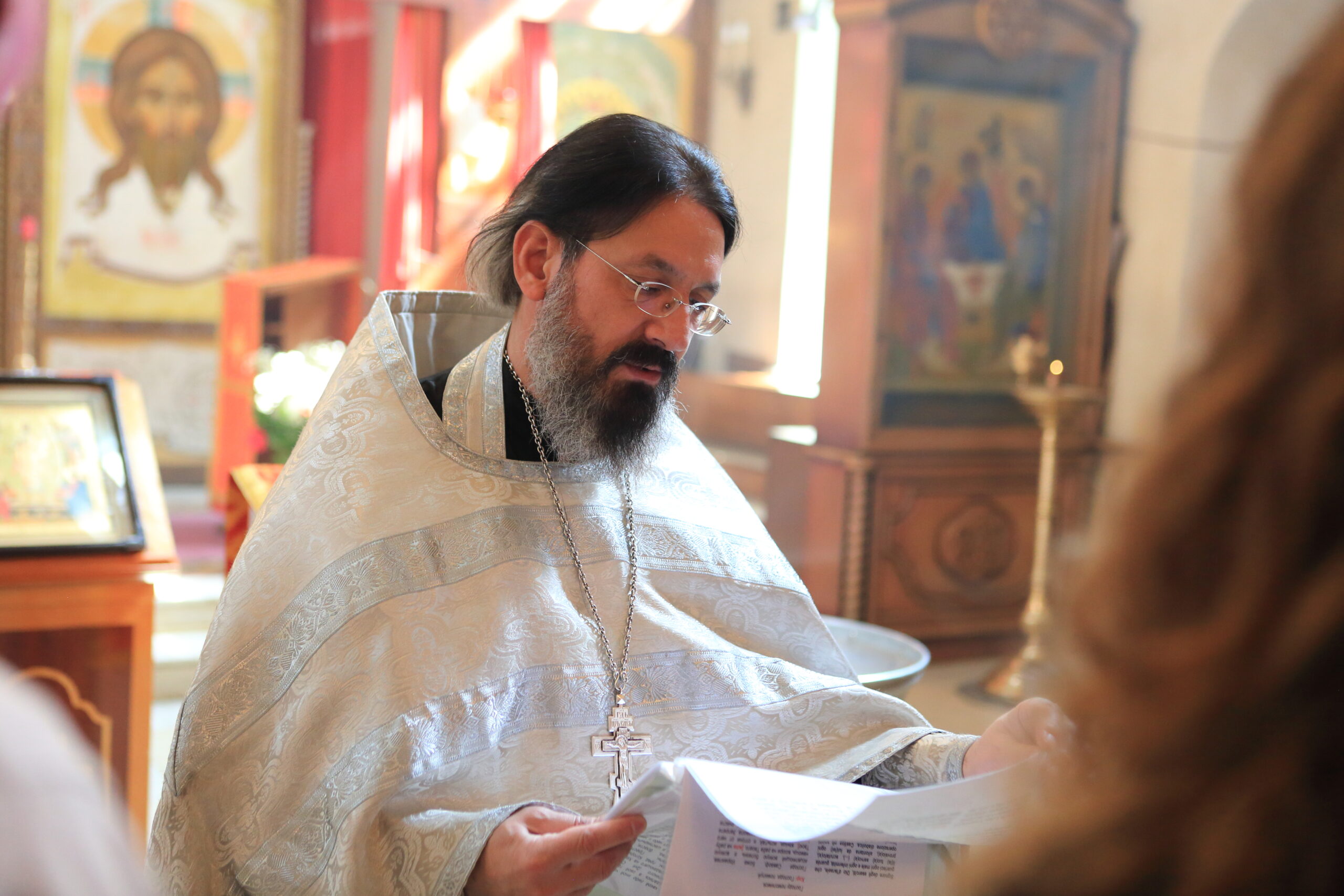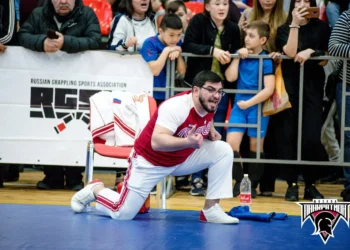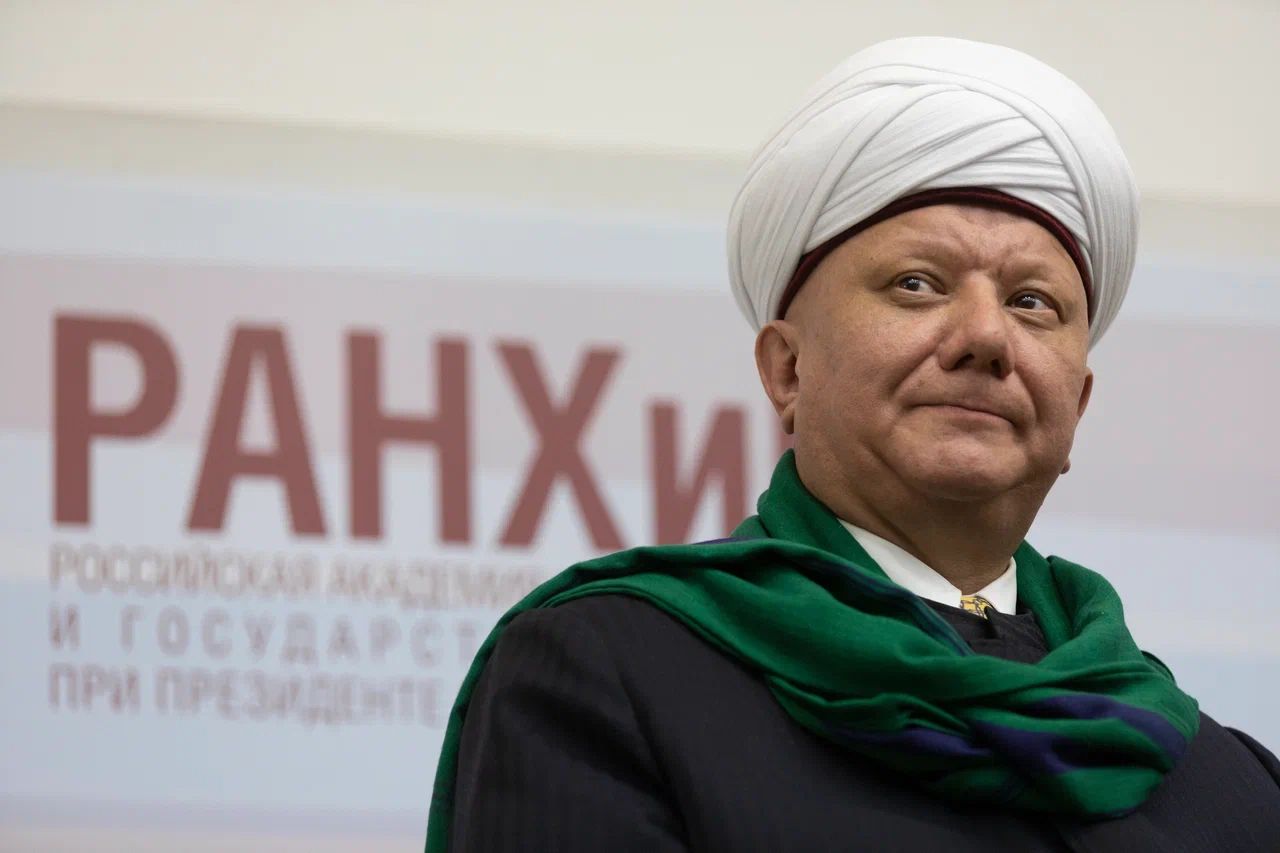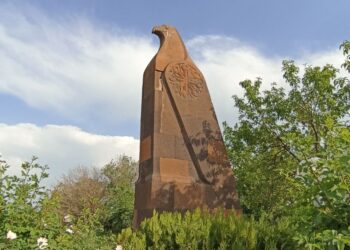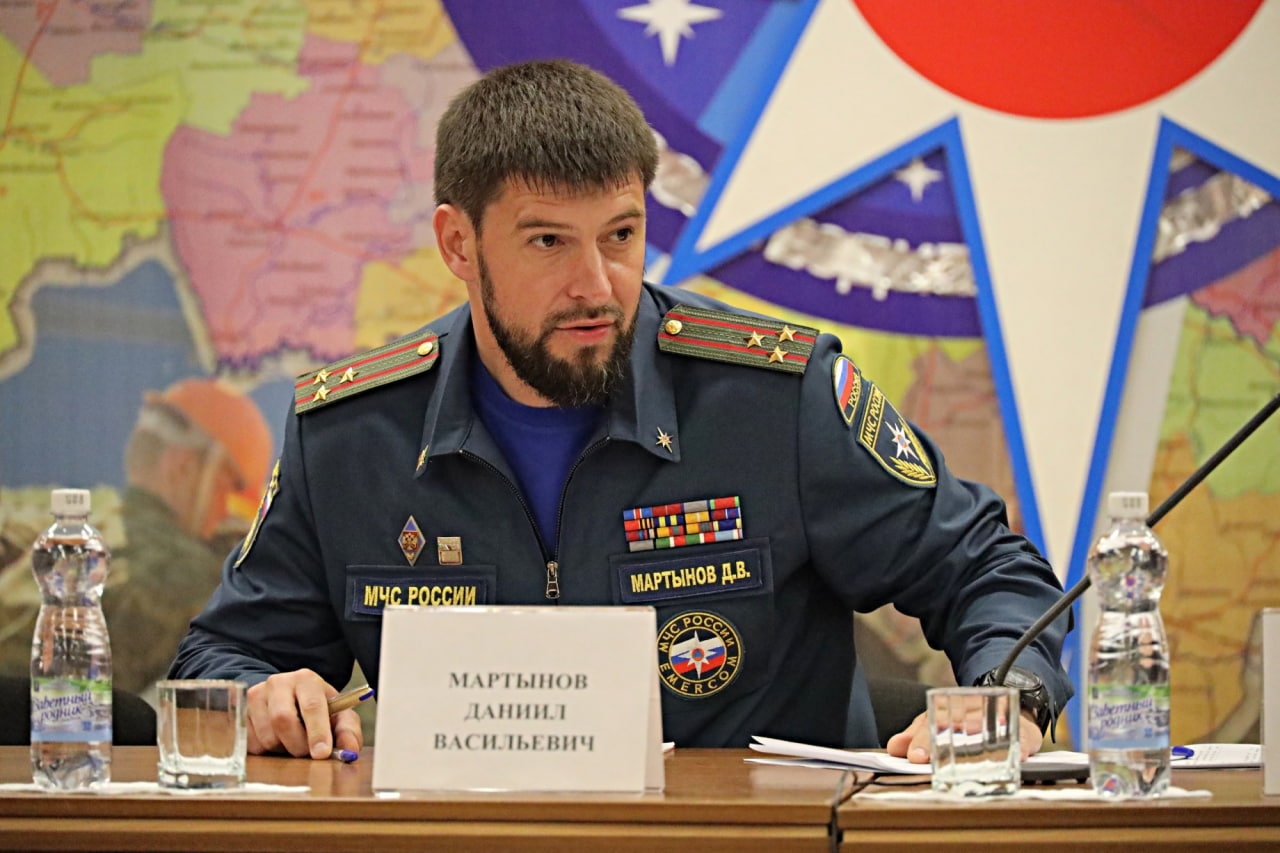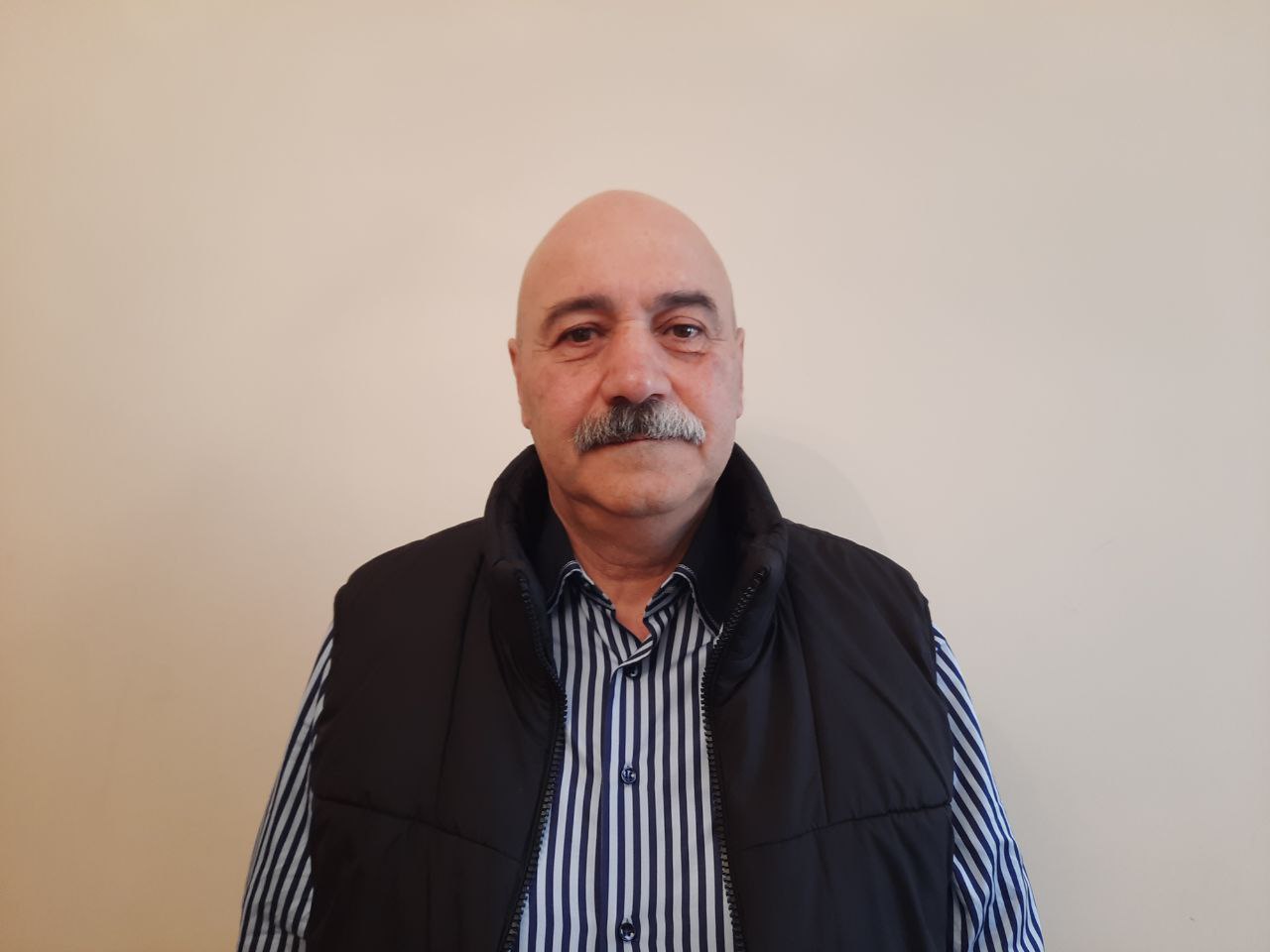MOSCOW (Realist English). Why being a Christian is a huge responsibility? What is the meaning of the Armenian history? Where is the boundary between the faith in One God and paganism? These and other questions from the Realist News Agency were answered by John, the hieromonk of the Russian Orthodox Church (in the worldly life – Giovanni Guaita), the author of historical works on Eastern Christianity and Armenia.
Realist: You have known Russia since Soviet times and are an eyewitness of two epochs. That is, you can compare them. Tell me, what is the difference between a believer in Russia and a believer in the Soviet Union?
Hieromonk John: Every epoch has its own characteristics, hopes and expectations. Which are sometimes deceived. Therefore, there are both negative and positive aspects. I caught the last period of the Soviet era, because I came to Russia before Perestroika. Of course, the situation of all the Churches changed. The Church in the Soviet times was persecuted. Moreover, both Russian Orthodox, Armenian, Catholic and all the others. It was sad and complicated.
On the other hand, believers in the Soviet times gave very serious testimony about what it means to believe in God in an atheistic environment. Being a believer was neither fashionable nor prestigious at that time. Believers became models for so many people because they were forced to swim against the current. Then came the Perestroika.
The Perestroika is the moment of hope, when a lot of opportunities have opened up for the Churches. Albeit that at first many did not believe that it would last for a long time, they were afraid that everything would come back. The state gave back all the temples and monasteries. The Church was in a hurry to take back everything, because they didn’t know if it would continue like this, or if everything would close again. day in and day out, everything was changing radically. Yes, the temples were given back, but in a terrible state and it was necessary to bring them to order and organize parish and monastic life. And monastic life is not so easy to organize: you need an age-old tradition. Hence the problems that are still with us. But in terms of hopes, the Perestroika as a whole was quite a bright streak for Churches and believers. And not only the Perestroika, but the famous 1990s.
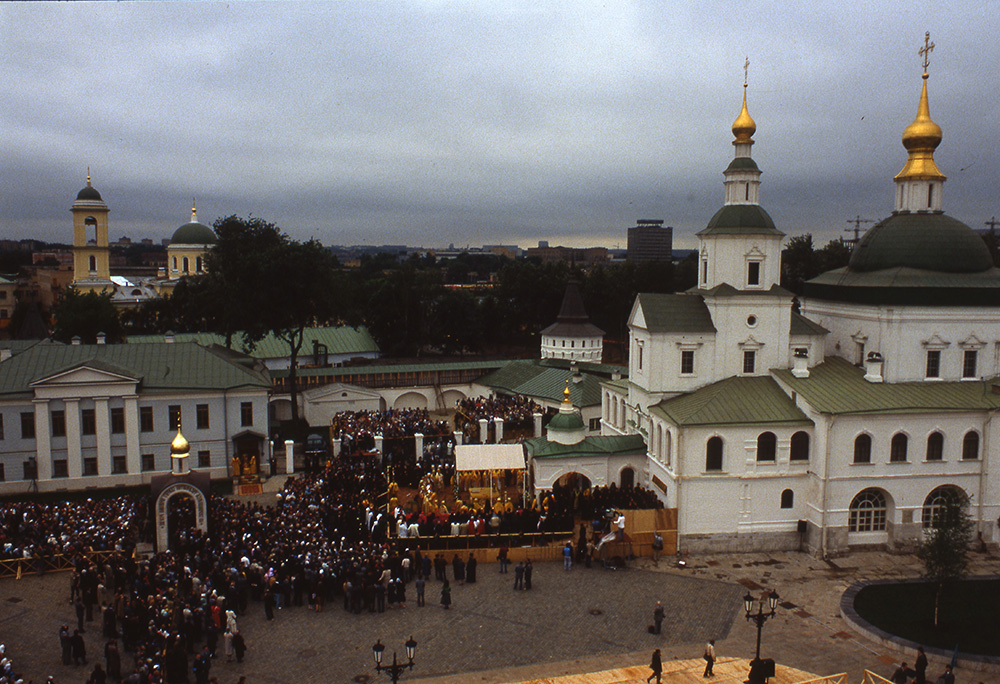
Now, the 1990s are very often denigrated, demonized, they say that it was bad: mafia, corruption, bandits. Yes, all this really was there, but, on the other hand, there was absolute freedom. There was no control on the part of the state authorities. A dissident person could openly speak about his displeasures. And there were no punishments for that.
Later on, when after Boris Yeltsin more order was brought, it became calm, but other problems appeared that accompany us up to this day. And what is happening today is as much a turning point in the history of Russia as the Perestroika.
The developments show us that there are very serious problems, including ideological and moral ones.
Realist: Do you mean the developments in the Ukraine?
Hieromonk John: Including the developmentstaking place in the Ukraine. They have and will have an impact on the internal life of Russia, as well as on the entire post-Soviet space and Europe. As a historian of the Church, I can say that there have been moments in the past when clouds are gathering and it seems as if time is moving faster. This, of course, is not the case. But something is still changing. Such a feeling often accompanies crisis moments. We are living through an absolutely difficult time right now. Let’s hope that as a result it will give something positive.
Realist: What epoch in the history of the Russian Orthodox Church can the current time be compared with?
Hieromonk John: It’s a difficult question. We are living through an epochal time for the Russian Orthodox Church. His Holiness Patriarch Kirill has said many times that recently we have been opening one church a day. And so it was. And now, it seems to me, another moment is coming when we should not care about the number of churches, but about the quality of the church life.
Earlier I mentioned that in the Soviet times believers were swimming against the current, but now it turns out to be the opposite. Now being an Orthodox in Russia is not only fashionable, ” trendy”, but it seems to be imposed by an “order of the unit” (smiles). But faith never turns out to be an “order of the unit”. Faith is a free choice of a free person. Faith is a fundamental change in a person’s life and behavior. And when it is given from the outside, it turns out to be a pathetic imitation, a prop. These are harsh words, but the time has come when we (I mean the clergy) should seriously ask ourselves questions about the quality of our church life. First of all, the clergy, and then everyone else.
Realist: There is an opinion that the persecution of the Church eventually strengthened people’s faith. Do you agree with this?
Hieromonk John: As a historian, I share this opinion. This has happened more than once in the history of the Church. Epochs of persecution harden believers. When everything is very good, when the embrace with the state authorities is very tight, then internal church problems begin. For example, in the history of the Church in the IV century there was a period of legalization, and then the adoption of Christianity — first in Armenia, and then in the Roman Empire. It’s wonderful when the authorities are friends with the Church.
But one can’t be a Christian just because this person is Russian, Armenian or Italian. Being a Christian is a very serious responsibility. This means being guided by the Christian faith in every moment and every circumstance of life. This is a process, a very difficult growth. Therefore, during the periods when it was difficult, Christians became much stronger than when they could relax. It’s the same in a person’s life: when everything is normal, we relax, and when there are difficulties, we ask ourselves serious questions.
Realist: After a series of dialogues, you wrote a book about the Catholicos of All Armenians Garegin I. What surprised you the most about this outstanding man?
Hieromonk John: It seems to me that Armenia has not fully understood or appreciated Catholicos Garegin I. He was a world-class man in his erudition, education and spiritual life. That’s why I wrote a book about him. I intended to make such a book out of dialogues with some prominent hierarch of some Eastern church. I have been for a long time looking for someone to talk to, and when I met Catholicos Garegin, I realized that this is the person with whom I would like to discuss some issues.
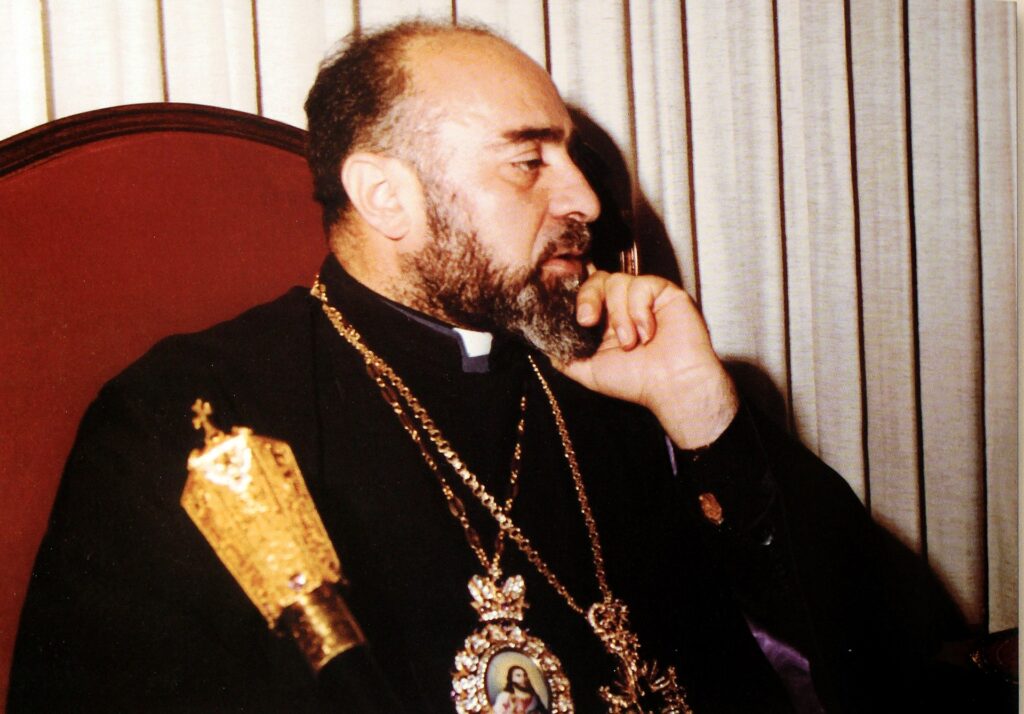
For I understood that he would not speak opportunistically, but what he really thinks. I could ask him all sorts of questions about the history of the Armenian Church and Armenia, as well as the history of the Church in general, about his personal biography, and the questions that every person asks himself, regardless of whether he is a believer or not: about the meaning of life, why we suffer, why we die. After all, if God is love, why can He allow such things as the earthquake in Spitak, or the Armenian Genocide? Why do children die? There are things that I have heard from the Catholicos, and they still support me.
Part of my priestly ministry is a children’s hospice. Dying children. I very often quote the words of Garegin I to the parents of these children. They don’t know who he is. “Catholicos” is translated as the supreme patriarch, in the Orthodox Church this word is not so common. The fact that he spoke specifically about the suffering of an innocent righteous man — it was so penetrating, so deep that I still think about this. I wrote this book in time without knowing about it. One of the last chapters — about suffering and death – we wrote down when there were the very first symptoms of his illness, which took his life in a matter of months.
The Catholicos was a very deep man. Even up until now, his words help, first of all, me and the parents of dying children.
Realist: The history of each nation has its own meaning. What, in your opinion, is the meaning of Armenian history?
Hieromonk John: Such questions are like talking about the Russian soul… (laughs). Probably, each nation has its own specific vocation. Here in the Bible we read how God calls Abraham. And in his person then calls all the people of Israel. As God calls people, so He calls nations. Therefore, every nation has a special vocation.
It turns out that there are a lot of difficult pages in Armenian history. After the book about the Catholicos, I wrote a book about the history of the Armenian Church, where this is also discussed. There was the Genocide in 1915, but problems, wars and exterminations took place in Armenian history much earlier.
Historical Armenia — and this space is much larger than the Republic of Armenia — geologically is a very unstable region. Therefore, earthquakes, volcanic eruptions and so on often occur there. The former Armenian capital of Ani was completely destroyed by an earthquake. And this has been repeated many times in the history of Armenia. Why is their fate so difficult? Probably that’s why Armenians are so mysterious that they often ask questions about their destiny, vocation, what it means to be an Armenian.
When a person suffers, he asks himself serious questions. Only then does he really begin to reflect, to think. Therefore, there were wonderful writers, artists and philosophers in Armenia. Suffering, the Armenian people were forced to ask themselves such questions.
One of the answers to this question is loyalty to God. Not always the Christian faith was the cause of their suffering, but there was always a force that helped to get out of the situation.
As often happens in history, even after trials, some good always turns out. It is the Genocide that gave birth to the Diaspora. In the diaspora, Armenians showed themselves as not very many peoples, they were able to take roots in the countries where they lived, becoming full-fledged citizens and patriots of the new homeland, while remaining Armenians. There are a lot of examples. This is very exciting and burning relevant against the backdrop of today’s events.
The Epistle to Diognetus, which is considered one of the first texts of Christian literature, says that Christians are “aliens” everywhere, even in their homeland they are foreigners, because their homeland is Heaven, the Kingdom of Heaven.
There is such a thing as “nationalism”. It usually has a negative value. A similar, but a more positive concept is “patriotism”, love for the Fatherland. But even this feeling can become completely negative when a person is exalted, putting his people and his culture above all. So, he will dislike, condemn everyone else, or despise, hate and destroy.
A Christian may cherish his Homeland, but he must clearly realize that he is a citizen of another Fatherland — the Kingdom of Heaven. As it is written in the Holy Scriptures, our Fatherland is the Kingdom of Heaven.
It seems to me that Armenians combine patriotism, which manifests itself in love for the historical Homeland, Christian altruism and sober realism. After all, Armenians usually do not remain strangers where they live.
I myself have been living abroad all my adult life. Having left my country as a teenager, I have always lived abroad. But nevertheless, I continue to feel like an Italian. I think that this is very important for a Christian spiritually. Especially if he has not traveled outside his village all his life. Since a Christian is a citizen of the Kingdom of Heaven, his Fatherland is in Heaven. The combination of these two things is a property of many Armenians. To be a patriot, to love your Fatherland, but also to live a full life outside of your homeland.
Realist: In the book “Islam is not involved in their deeds”, you make it clear through the testimony of Arab Fayez el-Huseyn that Turkish nationalism was the cause of the Armenian Genocide. One can’t argue with that. Although, probably, it is necessary to distinguish the concepts of “Nazism” and “nationalism” here. If the Turks didn’t kill Armenians as Muslims, then they did it as who?
Hieromonk John: They did it because of narrow nationalism, extremism. My fellow Italian writer Luigi Pirandello used to say that “all words are empty, and we fill them with meaning.” Therefore, it is necessary to agree on the meaning of the words. Nazism is when you exalt yourself and your culture, and despise others. And there is patriotism when you just love your country and its culture.
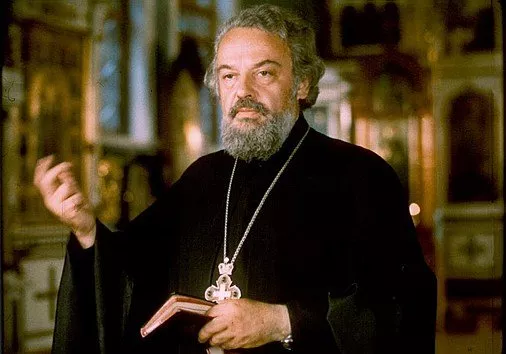
In addition to Catholicos Garegin I, in my life I met another wonderful person — the Orthodox priest and martyr Alexander Men. In a sense, he opened the doors of Orthodoxy to me, because it was in him that I saw the smiling face of Orthodoxy. Father Alexander said one thing, almost banal, but very important: “We all love our mother. Love for mom does not imply hatred for other people’s mothers” (smiles).
Realist: It’s brilliant.
Hieromonk John: Alas, this sometimes happens with this nationalism, which turns into extremism. This explains the wars and a lot of sadness.
I think the Turks exterminated the Armenians because they adhered to state nationalism. Due to their extreme nationalism, they decided to remove the Armenians, who, with their “inconvenient” community, occupied the central part of the territory, which the Turks already considered their own. In their view, the Armenian community was too independent, too educated and too rich. Therefore, the Turks decided to remove them.
Of course, the fact that Armenians were Christians also played a role, but I, as a historian, believe that this was not the root cause of the Genocide. The Turks in 1915 also killed those few Armenians who professed Islam. In addition, after the Armenians, they took up the Greeks, Syrians, Assyrians. Later came the turn of the Kurds. They wanted to destroy everything that was different from the general Turkish. That was the trouble.
Realist: But their state, built on blood, is still holding up.
Hieromonk John: Yes, it’s holding up for now, but with big problems. This has often been the case in history. I visited Istanbul. I really love this city. For me, as an Orthodox person, this is a city dear to my heart. There was a lot of horror in its history, connected not only with the capture of Constantinople by the Turks.
Alas, my ancestors the Venetians in 1204 also took the city, also raped and killed. It was the Fourth Crusade. There are such places with a hard fate.
Nevertheless, it is a most beautiful city in all respects. So is the whole country beautiful. And the landscape, and the architecture, and the history — albeit difficult. It is the cradle of world civilizations. The Armenian Highlands, Cappadocia… those places where both Syrians and Assyrians lived with Armenians. Thank God, I have traveled for quite a long time in today’s Turkey, I have been in Western Armenia. I have seen the whole of historical Armenia — Van, Ani, Kars and Diyarbakir (Tigranakert – Realist). Everything is very beautiful there, but with a very complicated history.
Realist: Where is the border between paganism and faith in One God today?
Hieromonk John: This border runs through our heart. We all remain pagans in one way or another. We must remember every day that we are Christians, that we have chosen Christ. At the very beginning of the rite of Baptism there is a renunciation. Man must renounce Satan, “all his angels,” and every service to him. But this same renunciation must be repeated every morning in one’s heart, opening one’s eyes.
Paganism means worshipping other gods, but these pagan gods can be money, health, welfare, and so on. Or superstition. Liberation from this is the line between paganism and the Christian faith.
Realist: We understand that you have little free time to dream, but still… What do you dream about in your free time?
Hieromonk John: I dream of becoming a better person. And not just for me, but for all of us. I am Italian, I love Armenian culture very much, I live in Russia. I love and honor the cultures of the Italian, Armenian and Russian peoples. I want Italians, Armenians and Russians, all of us and other nations to become better. So that we all live in a more civilized and humane world. So that we can learn to respect each other. When we think and act differently, when we have different beliefs, we must learn to coexist and live in tolerance, in respect. This is my main dream.
Every dream for a Christian is at the same time a prayer, because we believe in miracles. Therefore, such a miracle can happen that in fact we will all become more tolerant, civilized and humane. But, on the other hand, a dream is not only a prayer, it is also a call. The Lord calls you to do something yourself to speed up this process. When you can do something good to others – your own and foreign — you thereby accelerate this process of humanity and civilization.
Everyone knows that there is one parable in the Gospel, which is a verbal icon. It depicts and shows what it means to be a Christian and just a human being. This is the parable of the good Samaritan that Jesus Christ narrates when He is asked who is my neighbor. And here He tells about a man who was walking from Jerusalem to Jericho. He was beaten and robbed by robbers, leaving him with nothing. Then everything is like in the theater. Different people pass by and react differently. The priest passes first and does nothing, then the Levite (the deacon of that time). Everyone sees him and does nothing. Then a Samaritan passes by, who, according to the concepts of that time, was considered a foreigner and a heretic. Who is a heretic? The one who believes wrong.
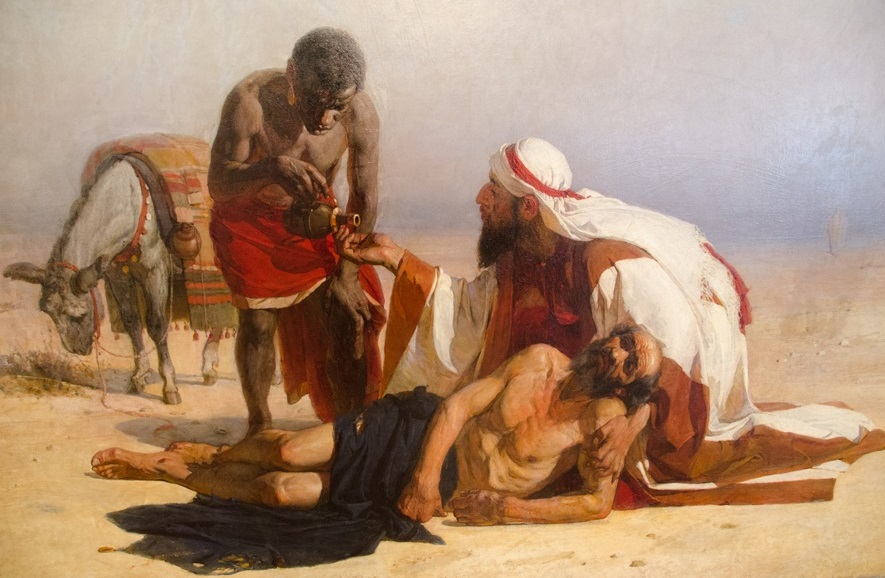
Many Orthodox Christians look at non—Orthodox Christians – other Christians: Catholics, Protestants, Armenians this way… They are Christians, but not “ours”. They believe, but “not quite right.” Exactly the same way the Jews and Galileans looked at the Samaritans. But this heretic was the only one who understood what it means to be a neighbor. He took on the other person’s problem, his grief, his misfortune, his illnesses, his wounds. The Samaritan passerby does not know this person. But he doesn’t just stop to dress his wounds, “pouring oil and wine” (an antiseptic of the time). He takes him with him to the hotel where he is staying. The next day, apparently, the stranger has not gotten better yet — and the Samaritan pays for the hotel for him. And he also promises an additional fee to the owner of the hotel, if he still spends on the guest.
Here I often wonder: which one of us would do that to a stranger? How many homeless people there are in Moscow… the maximum that many people do is leave them some pennies and go their own way. And the Samaritan did something completely different.
Such extreme concern for a stranger on the part of a heretic foreigner, which Christ shows us in the Gospel, means simply being a human being.
Therefore, my dream is that I and others could approach such a model.


